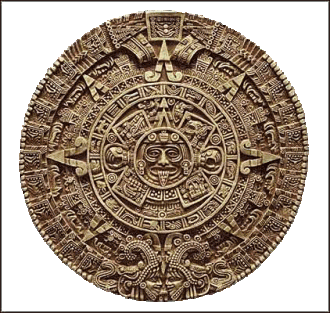
In a little over two weeks from this writing, we will enter into the winter solstice in the Northern Hemisphere. And, according to some, the end of the world, based upon the idea that the Mayan Long Count calendar comes to an end on December 21, 2012. While this “2012 Doomsday” theory is dispelled by the scientific community, that hasn’t stopped believers from preparing.
I don’t personally believe the end of the world is coming on the 21st of December any more than I believed the scores of other “end of times” predictions that have happened in my lifetime. But what this particular event has inspired is some good storytelling and an awareness of the Mayan culture.
My favorite guilty pleasure director is Roland Emmerich, who has produced many disaster films including Independence Day, The Day After Tomorrow and 2012. While I personally don’t think 2012 was Emmerich’s strongest film, it did bring the “2012 Doomsday” theory to the masses and it’s popularity has arguably driven interest in shows like Doomsday Preppers and the countless websites that offer “insider information” on the 2012 conspiracy (as well as a convenient way to buy their products).
The end of the Mayan Long Count calendar isn’t all gloom and doom, however. The Yucatan region, known as Mundo Maya (Mayan World), is attracting record numbers of visitors as celebrations have been going on all year long.
Early on, the Mexico Tourism Board forecasted an onslaught of visitors to the Mayan region this year: more than 50 million domestic and international arrivals, according to one estimate.
The biggest draw, of course, are the archaeological sites, ranging from Chichen Itza in the Yucatan (1.2 million tourists a year) to lesser-known sites such as La Ruinas, a small campground near Playa del Carmen with a couple of temple structures.
Myers, Gay Nagle. (December 5, 2012). Mayan ‘end of the world’ poses rare travel marketing prospect. Travel Weekly. Retrieved December 5, 2012. From http://tinyurl.com/cer8esm.
The indigenous people of the area state that the end of the Mayan calendar is not the end of the world, but rather the transition into the new era. Much like our celebration on New Years Eve to transition to the new year. Except that this transition ends 5,100 years.
The Mayan civilization declined after the arrival of the Spanish Conquistadors but it is the abandonment of several large Mayan cities in the 8th and 9th Centuries that are the biggest archeological mysteries. So whether your macabre tastes take you to Mexico this December to await the end of the world or to enjoy the rich historic culture of the ancient Mayan civilization, you are bound to find something that sparks your interest!
